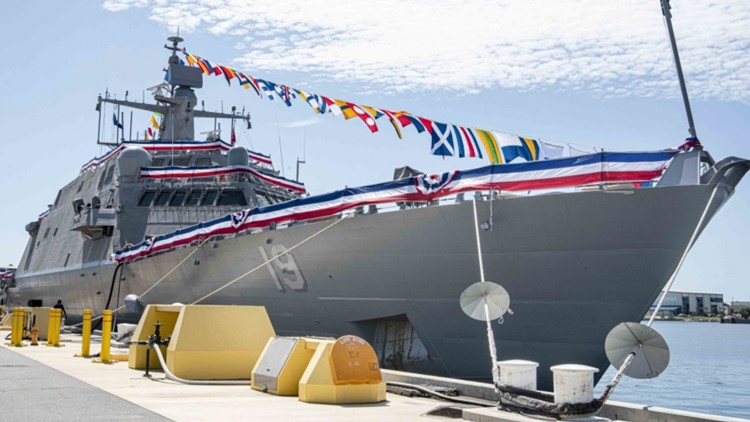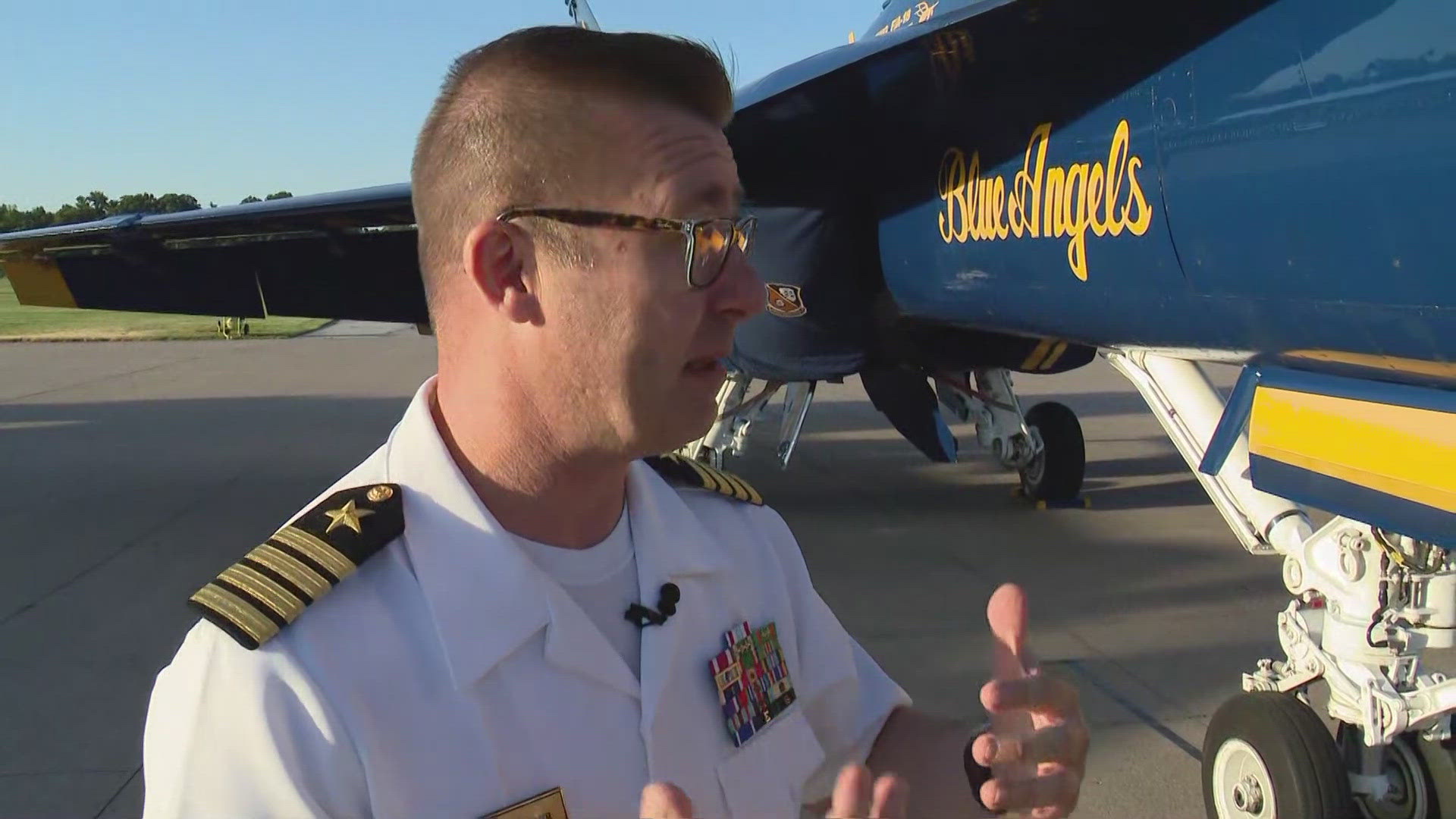Nearly 200 years after the first ship to bear the name was launched, the seventh USS St. Louis was commissioned, Saturday at the Naval Station Mayport.
The Independence-variant littoral combat ship USS St. Louis (LCS 19), was welcomed back to the fleet during a private event, due to public health safety concerns and restrictions of large public gatherings related to the novel coronavirus (COVID-19) pandemic.
“Much like that sloop of war did in 1828, LCS-19 and her crew will protect the U.S. and our interests near and abroad," said Secretary of the Navy Kenneth J. Braithwaite. "Whether conducting counter-narcotic operations in the Caribbean or working to enhance interoperability with partners and allies at sea, USS St. Louis will provide maneuverability, stability and lethality in today’s era of Great Power Competition.”
Adm. Craig Faller, commander of U.S. Southern Command, said littoral combat ships, like the St. Louis, have played an important role supporting operations in his command's geographic area of focus.
"The littoral combat ship has proven to be an effective and adaptable platform capable of multiple missions in our area of responsibility," Faller said. "It has become an end-game enabler for U.S. Coast Guard law enforcement authorities who disrupt transnational criminal organizations and the smuggling of deadly narcotics. Adding the LCS to our Enhanced Counter Narcotics Operation is helping save lives."
Rear Adm. Brad Cooper II, Commander, Naval Surface Force Atlantic, welcomed the ship that brings capabilities to counter diesel submarine, mines, and fast surface craft threats to the world’s premier Surface Force.
“St. Louis brings speed and agility to the fleet,” said Cooper. “Congratulations to St. Louis’ captain and crew for all of your hard work to reach this milestone. You join a proud Surface Force that controls the seas and provides the Nation with naval combat power when and where needed.”
Barbara Broadhurst Taylor, the ship’s sponsor, offered congratulations to everyone who played a role in delivering USS St. Louis to service.
“To witness the skill and commitment of the officers and crew of USS ST LOUIS as they brought our magnificent ship to life has been one of the greatest honors of my life. All of us in the great city of St. Louis are proud to be part of our ship’s historic legacy and extend our appreciation and lasting friendship to the crew and their families,” Taylor said. “Your patriotism and dedication to preserving peace and freedom inspires us. May God bless our ship and all who sail her.”
Charles Williams, Assistant Secretary of the Navy for Energy, Installations, and Environment expressed gratitude to the ships sponsor for their commitment to the Navy. "I want to express the Navy's deep appreciation to the Taylor family. Much of what they do is anonymous but believe me when I say they are the preeminent philanthropic family of the St. Louis community and a donor to Navy causes,” said Williams.
St. Louis’ commanding officer, Cmdr. Kevin Hagan, reported the ship ready.
“I’m incredibly proud of the work the crew of St. Louis put in to get this ship ready to sail. I am absolutely honored to lead this crew through all of the trials required of a brand-new ship in the fleet,” said Hagan. “Their perseverance and dedication will set the foundation for our crew and for all future crews that will call USS St. Louis their home.”
St. Louis is the 22nd LCS to be delivered to the Navy, and the tenth of the Freedom-variant to join the fleet and is the seventh ship to bear the name. The first St. Louis, a sloop of war, was launched in 1828. It spent the majority of its service patrolling the coasts of the Americas to secure interests and trade. In addition, it served as the flagship for the West Indies Squadron working to suppress piracy in the Caribbean Sea, the Antilles and the Gulf of Mexico region.
The littoral combat ship is a fast, agile and networked surface combatant, and the primary mission for the LCS includes countering diesel submarine threats, littoral mine threats and surface threats to assure maritime access for joint forces. The underlying strength of the LCS lies in its innovative design approach, applying modularity for operational flexibility. Fundamental to this approach is the capability to rapidly install interchangeable mission packages (MPs) onto the seaframe to fulfill a specific mission and then be uninstalled, maintained and upgraded at the Mission Package Support Facility (MPSF) for future use aboard any LCS seaframe.
Participating in the ceremonial flyover for the commissioning of the Navy’s newest littoral combat ship included two MH-60R, assigned to Helicopter Maritime Strike Squadron (HSM) 60 and HSM-70, based out of Naval Air Station (NAS) Jacksonville. Primary missions of the MH-60R include Anti-Submarine Warfare, Anti-Surface Warfare, Surveillance, Communications Relay, Combat Search and Rescue, Naval Gunfire Support and logistics support.
When the USS St. Louis is paired with world’s most advanced maritime helicopter, the MH-60R, it will have a robust anti-submarine mission capability that is fully interoperable with the U.S. Navy and its coalition partners.



